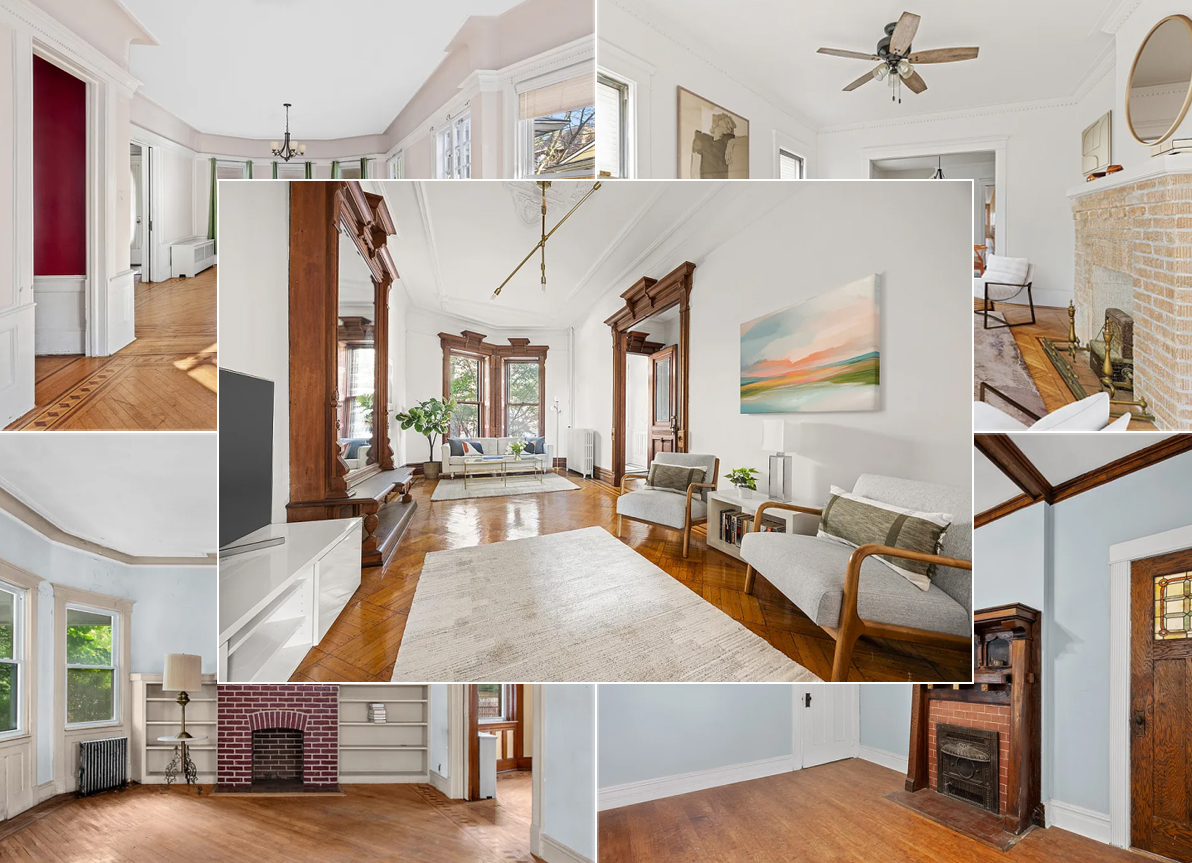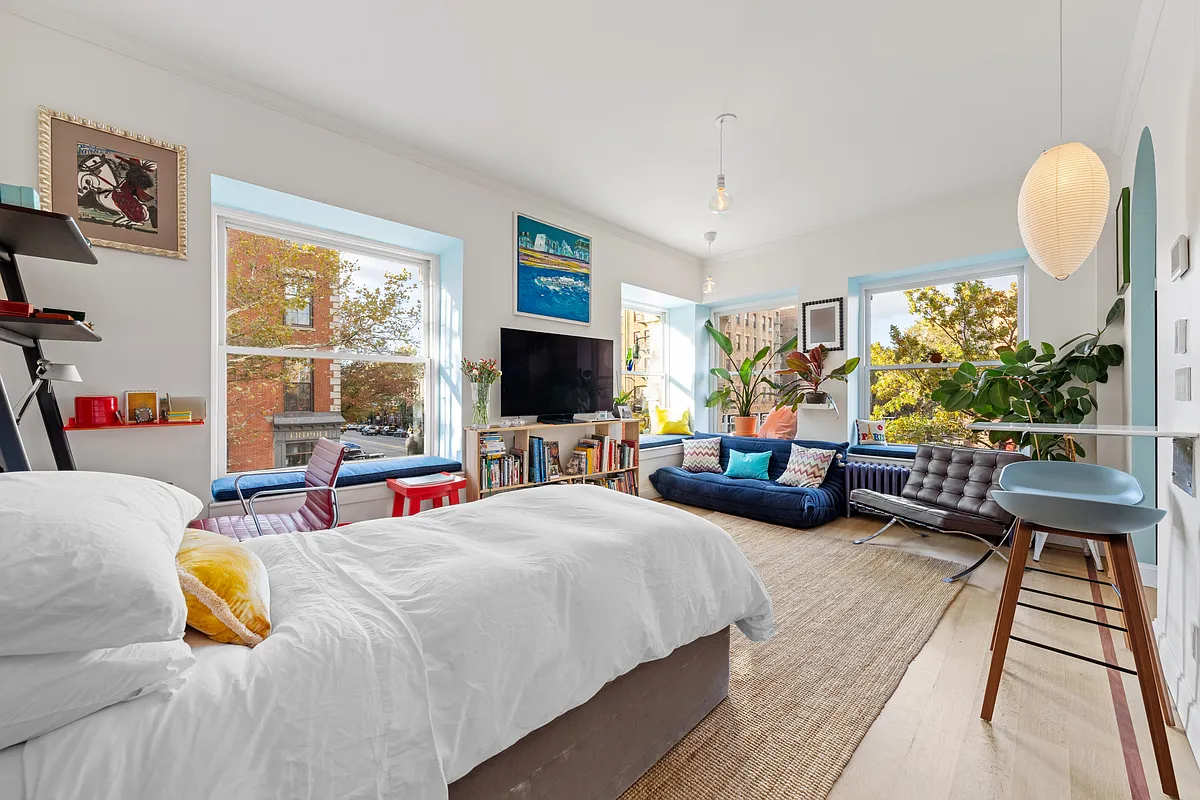To Pull the Trigger or Not to Pull the Trigger
Q: Is the air really coming out of the housing market? Should I wait or go ahead and buy? A: So should you wait to buy? Maybe. If nothing more is fueling the bidding wars in your neighborhood than fear and habit, then it makes sense to wait. Unless a big local employer leaves town,…
Q: Is the air really coming out of the housing market? Should I wait or go ahead and buy?
A: So should you wait to buy? Maybe. If nothing more is fueling the bidding wars in your neighborhood than fear and habit, then it makes sense to wait. Unless a big local employer leaves town, real-estate markets rarely change overnight. It usually takes several months for sellers to realize a market has shifted and to lower their prices, and for buyers to understand that they finally have choices and negotiating room. But if you know you are going to stay in the area for years, and will be able to ride out a cooling real-estate cycle, then keep shopping. Overall, house prices aren’t likely to plunge precipitously, even in overheated markets, most economists say. Mortgage interest rates could creep higher in the year ahead, though, eroding your buying power. Just remember to think of that home primarily as shelter, and not as an “investment.” That will help you keep your purchase in perspective, even when frantic buyers all around you are losing theirs.
Is the Party Really Over for Housing Boom? [WSJ]





I don’t know what are this popele talking about, all i know is that i missed the first wave in 1993 and friends of mine that used to be panhandlers a\bougth a condo in park slope sold it for 700k bought a brownstone gor 800k in 2000 and now it is worh 2M so you do the math.
luck for me i didn’t missed the 2000 wave bought a house for 465K around park slope
and the house worth now 1.3M on the lower side and now i bought another one in a good deal Center Slope and will gut renovate this one and believe me it will be sold in 2010 for double the amount not including the reantal i’m going to get there. Do the math and do not listen to all the wise guys in this blog.
where else you’ll get this kind of money?
I think you’re all half right. Certainly, a home is not an investment in the purest sense of the word. However, I think the case can be made that brownstones are often properties with quasi-investment characteristics due to the potential for conversion to income producing property. I own a legal 2-family in prime PS. The rental income from one floor pays half the mortgage and I get to live in the other three floors. If I had converted it into 2 duplexes, then probably 3/4’s of my mortgage would be covered by rental income. A substantial portion of my payments (half of which comes from rental income) amortizes my mortgage. In addition, I am fortunate enough to have chosen to buy in a nabe that has increased in popularity for any number of reasons (I like to think that it was my good judgement not luck).
At some point in 15-20 years I will relocate and either (1) sell the house and cash out the substantial equity I’ve accrued, (2) move, rent 100% of the space and live off the considerable income, or (3) develop/convert it to condos which I could sell and/or keep one or two for rental or personal use. Either way, these buildings provide enough flexibility for income and/or conversion that I view it as a partial invstmt.
That said, I still save aggressively for retirement. I’m not counting on the brownstone, but so far it has been a wise decision, generating gains that far outstrip any other “invmt” I’ve made.
BTW, to iceberg: Regulation plans an important role in ALL forms of invmt. Nothing unusual about that. And there are costs all to all invments: some more hidden than others. Money does not grow on roof shingles, but brownstone ownership has made some folks very wealthy indeed.
iceberg, get off it!
I suggest you poll your brownstoning friends on the size of their homeowners’ insurance policies. This indicates the replacement value of the structure. In most cases this will reflect very little historical appreciation over and above depreciation/maintenance. (Blue chip antique furniture has historically appreciated at less than 10%/year, and requires little physial maintenance or repair.)
What has really appreciated is the land. Few of us consider ourselves as leveraged speculators in unimproved land, yet that is a big part the investment potential of our homes.
I think it is easy, especially when it comes to older structures, to overestimate the intrinsic value of the home when it is the land that has much of the value and appreciation potential.
If you are thinking of a home’s potential as an investment think about what makes land more valuable. Rental value, stricter zoning rules, enhanced infrastructure and amenities, population growth, etc. I personally don’t see huge potential in most of the Blue chip areas of NYC.
Iceberg, most brownstones are multi-family. These properties are very much an investment in the economic sense.
The portion of the home used by the owner is a consumer good. However, the portion rented out is a captital good. It is purchased for continued and long-term use in earning profit in a business.
If someone buys a owner-occupied property and treats it like a home instead of an investment, they’re making a big mistake. For many buyers, rental income is the only way of “affording” the purchase.
I personally question the financial sense of buying owner occupied rental properties right now. For the life of me i cant understand why someone would want to saddle themselves with a negative cash flow investment just so they can get their slice of the pie.
Why does housing continue to appreciate even in places where there are no zoning laws?
Shorter this Q&A:
Q: Is the air really coming out of the housing market? Should I wait or go ahead and buy?
A: How the ____ do I know?
One thing that I think that is being overlooked is that naysayers love to say nay, (thanks 1st gen. SimCity) writers get payed to write and gloom-and-doom sells. Is someone in 2011 going to say “Wow this is an insightful article on real estate by June Fletcher, but she totally blew it on the bubble in 2006”?
Whatever they right will likely be forgotten as things shift, unless they pull a blodgett or something similar.
Of course its all based on numbers and trends, but both sides are using them for their points. Negativity sells.
I always wondered why those tuscan villas that haven’t been renovated in 400 years are now $4 million euros. I think location might have something to do with price appreciation. Also, historically, a car is a depreciating asset whereas a house is an appreciating asset. There is something called land underneath and where that land is has a lot more to do with the price over time than the maintenance of the house. And sorry, the zoning argument is a bunch of bs, do you know how many new developments there are? Look at williamsburg for example. I don’t think restrictive zoning is holding back supply.